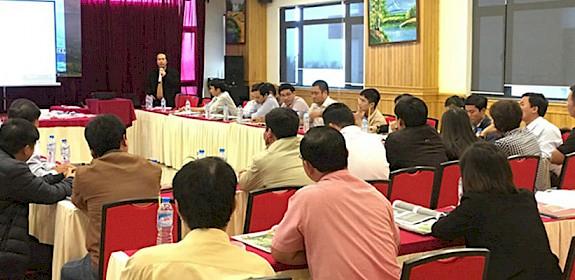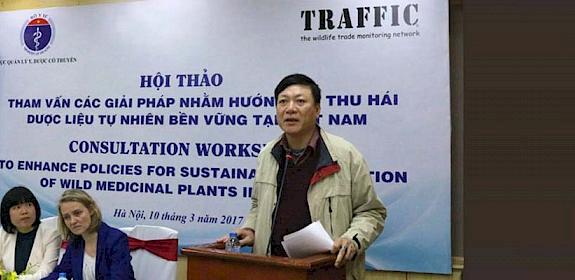Spotlight on sustainable use and community management of wild resources in Central Asia
Kyrgyzstan, February 2019— the report of the Central Asia regional meeting of the IUCN Sustainable Use and Livelihoods Specialist Group (IUCN SULi) "Achieving Conservation Goals through Community Benefits and Empowerment" has been recently published. The event, held in September 2018 in Kyrgyzstan, examined sustainable use and community management of wild resources and was convened by IUCN SULi, co-convened with partners Panthera, the Hunting and Conservation Alliance of Tajikistan, TRAFFIC, IUCN Eastern Europe and Central Asia Regional Office and the German Government’s GIZ.
There is a key role in conservation strategies and livelihood and resource management options for many Central Asian countries through the sustainable and integrated use of wild species and habitats. However, illegal and/or unsustainable trade persists, as does extensive habitat loss and degradation, alongside challenges around governance frameworks and institutions.
The meeting reviewed the status of particular wild species across the region and the threats facing them, frameworks and approaches for resource management, the role of community rights and benefits, and the potential to work with key stakeholders—including the hunting sector—to strengthen wildlife conservation and associated livelihood benefits.
Meeting participants concluded that strengthening the role of local communities in managing wild resources, including animals, plants, and their habitats, could reduce poaching and habitat loss and support a number of areas, including food security and livelihoods, more effective law enforcement, and climate adaptation and resilience.
Participants highlighted the key challenges facing community-based wildlife management and articulated key recommendations for governments, conservation organisations, development agencies, local communities, and other stakeholders in the region.
TRAFFIC’s contribution to the event focused on the potential for sustainable wild plant trade in the wider Central Asia region and the associated benefits that could bring, together with an overview of international wildlife trade from the region. “Wild plant resources across Central Asia are an important source of subsistence, traditional uses, as well as domestic and international trade, and can contribute to the conservation of landscapes, and sustainable economic development. One such example is wild liquorice root traded from Kazakhstan. The use of the FairWild certification contributes to the long-term survival of species harvested, as well as sustainable incomes (for example over US$60,000 were provided by buyers to collector communities through the FairWild Premium Fund since 2009) – said Anastasiya Timoshyna, TRAFFIC’s Senior Programme Co-Ordinator- Sustainable Trade. “We hope this example can be replicated across the region”.
TRAFFIC also helped formulate the “Chunkurchak Recommendations on Community-based Wildlife Management in the broader Central Asian region” that are aimed at promoting sustainable use and the associated benefits that can bring in the region. The recommendations can be found within the meeting’s formal proceedings.
This event demonstrated multiple examples of conservation and livelihood benefits from community-based sustainable wildlife management
Katalin Kecse-Nagy, Head of TRAFFIC’s Programme Office in Europe
"These experiences, combined with enabling policy and legislative framework, enforced in practice, and the engagement of public and private sectors play an important role in ensuring responsible trade in wildlife, and would, hopefully, lead to the multiple benefits to both people and the long-term survival of species”, said Katalin Kecse-Nagy, Head of TRAFFIC’s Programme Office in Europe.
TRAFFIC’s participation at the event was supported through the USAID funded Wildlife TRAPS Project as part of its ongoing engagement to the regional and global work with the IUCN SULi and other partners.
About Wildlife TRAPS
The USAID-funded Wildlife Trafficking, Response, Assessment and Priority Setting (Wildlife TRAPS) Project is an initiative that is designed to secure a transformation in the level of co-operation between an international community of stakeholders who are impacted by illegal wildlife trade between Africa and Asia. The project is designed to increase understanding of the true character and scale of the response required, to set priorities, identify intervention points, and test non-traditional approaches with project partners.




